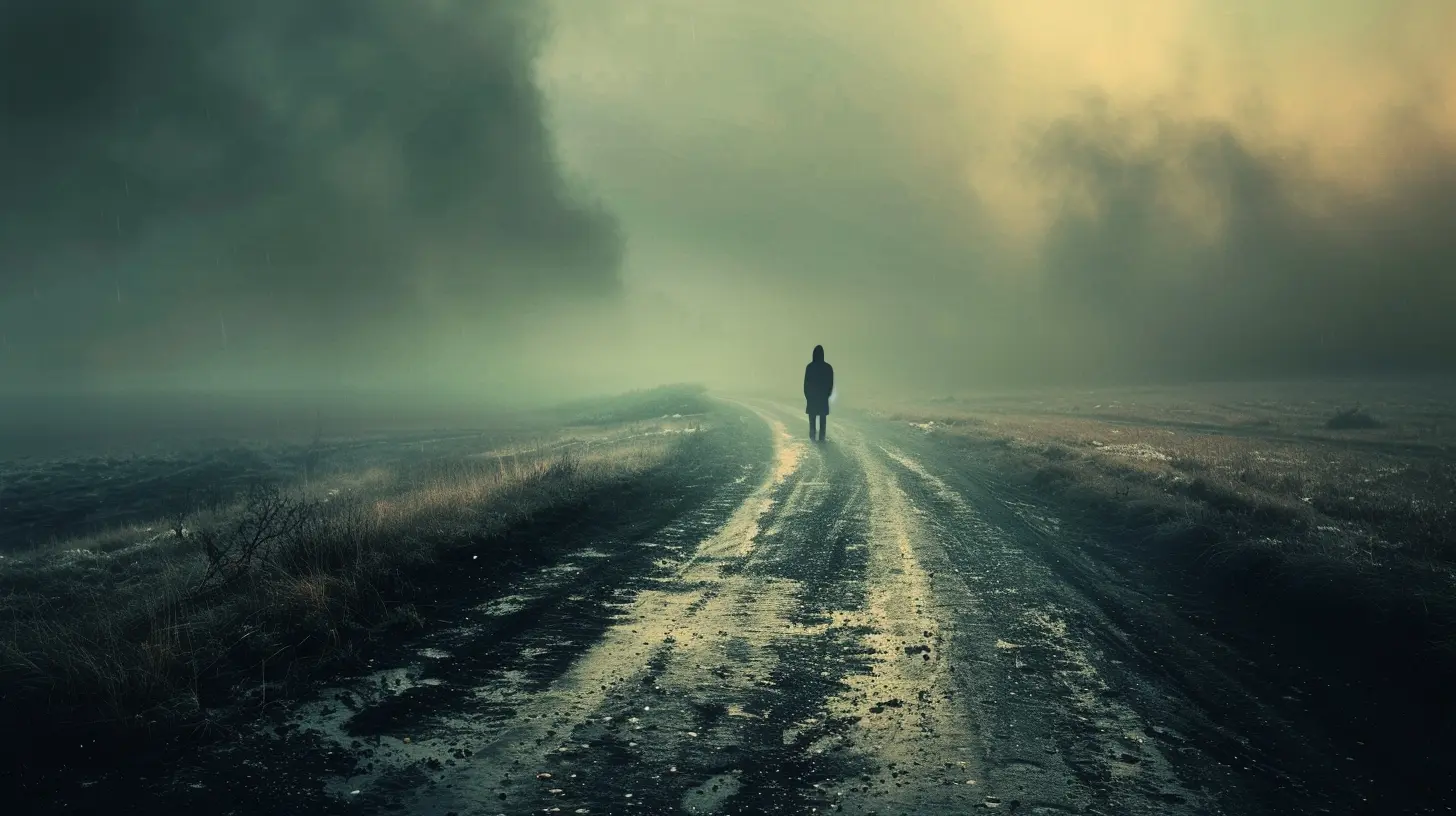Repressed Trauma: The Long Road to Uncovering Buried Memories
22 June 2025
Imagine for a moment that your mind is like an old attic. Over the years, you've filled it with boxes. Some are neatly organized, while others are pushed into dark corners, forgotten and gathering dust. You may not remember what's inside those boxes, but they’re still there, hidden beneath layers of time. For many people, those dusty boxes represent something far more significant than old photo albums or forgotten mementos—they represent repressed trauma.
Repressed trauma is like a silent movie playing in the background of your life. You don’t consciously know it's there, but it affects you in ways you can't always explain. Maybe it shows up in the form of anxiety, depression, or trust issues. But how do you uncover something your brain has tucked away so deeply? And why does it even get repressed in the first place?
In this article, we’ll explore the concept of repressed trauma, why it happens, how it impacts your life, and the long, often challenging road to uncovering those buried memories. So, let’s roll up our sleeves and start digging through the metaphorical attic of the mind.

What Is Repressed Trauma?
Repressed trauma refers to traumatic events that a person unconsciously buries deep within their mind. These are memories that are too painful or overwhelming to deal with at the time, so the mind essentially "locks them away."You might not consciously remember the traumatic event, but that doesn’t mean it’s gone. Think of it like sweeping dirt under a rug—it may be out of sight, but it’s still there, and eventually, it’ll start affecting the room (or, in this case, your mental health).
Why Does Repression Happen?
Trauma is messy. It’s not just something that happens to you; it’s something that happens inside you. When a traumatic event occurs, your brain may go into survival mode. In an attempt to protect you from emotional distress, it tries to "forget" the event by pushing it into the unconscious mind.This is especially common with childhood trauma, as children's brains are still developing. They may not have the tools to process the overwhelming emotions that accompany traumatic experiences, so their brains “file away” the event, thinking they’ll deal with it later. Except, sometimes, later never comes—at least not until symptoms begin to surface.

Signs You May Have Repressed Trauma
While repressed memories remain hidden from your conscious mind, they often leave clues in your actions, emotions, and even physical health. Here are some signs that you might be dealing with repressed trauma:1. Unexplained Anxiety or Depression
Do you feel anxious or depressed without knowing why? You may have tried to pinpoint the cause, but nothing seems to add up. This could be a sign that your brain is responding to unresolved trauma. The feelings you experience today may be echoing the emotions you felt during the traumatic event, even if you don’t consciously remember it.
2. Emotional Numbness or Detachment
Some people with repressed trauma report feeling emotionally numb, like they're watching life happen from a distance. This detachment can be a defense mechanism, preventing them from feeling the pain that those hidden memories would otherwise bring.3. Unexplained Physical Symptoms
It’s common for repressed trauma to manifest physically. You might experience chronic headaches, stomach issues, or body aches with no clear medical cause. The mind-body connection is powerful, and unresolved emotional pain can show up as physical discomfort.4. Difficulty Forming or Maintaining Relationships
If you have trust issues or struggle with intimacy, this could be linked to repressed trauma. Trauma can warp your view of others, making it hard to feel safe or connected in relationships. You might subconsciously push people away, fearing that they will hurt you, even if you’re not sure why you feel that way.5. Flashbacks or Nightmares
Sometimes, repressed trauma tries to make its way to the surface through flashbacks or nightmares. You may suddenly have vivid, distressing dreams or memories that seem out of place or disconnected from your current reality. It’s like your brain is trying to give you small glimpses of what was once buried.
The Science Behind Repressed Memories
So, what’s the deal with repressed memories? Are they real, or is it all just a psychological myth? The concept of repressed memories has been a subject of debate for decades, particularly in the fields of psychology and neuroscience.Memory and the Brain
When you experience trauma, your brain goes into overdrive. The amygdala, the part of your brain responsible for processing emotions, kicks into high gear, while the hippocampus, which helps store memories, can become overwhelmed. This cocktail of brain activity can lead to fragmented or incomplete memories of the event.In some cases, the brain's defense mechanism may block the memory altogether, placing it in the unconscious mind. Over time, these memories can become inaccessible to the conscious mind, even though they still exist. However, they often continue to influence your thoughts, emotions, and actions in subtle and not-so-subtle ways.
Are Repressed Memories Always Reliable?
Here’s where things get tricky. While many people believe they have repressed memories of trauma, the accuracy of those memories is a subject of controversy. Memory is not like a video recorder. It’s malleable and can be influenced by various factors, including suggestion from others (like a therapist) or even your own imagination.This doesn’t mean repressed memories aren’t real, but it’s important to approach the process of uncovering them with care and skepticism. False memories can be as emotionally impactful as real ones, and it’s crucial to work with a trained professional when exploring repressed trauma.

How To Uncover Repressed Trauma
Uncovering repressed trauma is not like opening a treasure chest with a key. It's more like slowly peeling back the layers of an onion—emotional layers that may bring tears as you go deeper. It’s a process that requires time, patience, and often professional help.1. Therapy
The most common way to begin uncovering repressed trauma is through therapy, particularly trauma-focused therapy. Cognitive Behavioral Therapy (CBT), Eye Movement Desensitization and Reprocessing (EMDR), and psychodynamic therapy are all approaches that can help you access and process hidden memories.A therapist can guide you through the process in a safe environment, helping you to unpack the memories that have been buried and providing tools to cope with the emotions that arise.
2. Journaling
Sometimes, writing can be a powerful tool for unlocking hidden memories. By journaling about your emotions, dreams, and even bodily sensations, you may start to notice patterns or themes that point toward repressed trauma.The goal isn’t to force the memory to come back but to create space for your unconscious mind to bring forward what it needs to in its own time.
3. Mindfulness and Meditation
Mindfulness and meditation can also help you become more aware of what’s happening beneath the surface. By calming your mind and tuning into your body, you may start to notice sensations, emotions, or even images that point to hidden trauma.While mindfulness alone may not uncover repressed memories, it can be a helpful complement to therapy or journaling.
4. Art and Creative Expression
Sometimes, words aren’t enough to express what’s locked away in your unconscious. Art, music, and other forms of creative expression can provide an outlet for emotions that are difficult to articulate.Through painting, drawing, or even dance, you might find that your body and mind begin to release pieces of the trauma that have been buried.
The Challenges of Uncovering Repressed Trauma
Uncovering repressed trauma is not a linear process. It’s messy, unpredictable, and often painful. You may feel worse before you feel better, as old wounds are reopened. But much like cleaning out that old attic, the process can be deeply rewarding once you’ve made it through the toughest parts.Emotional Flooding
One of the challenges of uncovering repressed trauma is the potential for emotional flooding. This happens when repressed memories and emotions come rushing back all at once, overwhelming your mind and body. That’s why it’s vital to go slow and work with a trained professional who can help you navigate the process safely.The Risk of False Memories
As mentioned earlier, memory is a tricky thing. While many people have successfully uncovered repressed trauma, there’s also a risk of developing false memories, especially if the process is guided by suggestion or leading questions. This is another reason why it’s crucial to work with someone who has experience in trauma therapy and understands the complexities of memory.
Healing and Moving Forward
The goal of uncovering repressed trauma isn’t just to remember what happened; it’s to heal. By bringing these hidden memories into the light, you can begin to process the emotions attached to them.Healing from trauma is like putting together a puzzle. Each piece of the memory you recover is a small part of the bigger picture. And while it may never be complete, the more pieces you have, the more you can understand your story—and ultimately, find peace.
Conclusion
Repressed trauma isn’t something that can be easily uncovered, but it’s not impossible either. Like that old attic full of boxes, the memories may be buried, but they’re still there, influencing your life in ways you may not completely understand. By working through the process of uncovering these hidden memories, with the help of therapy, mindfulness, or creative expression, you can begin to heal from the past and move forward.The road to uncovering repressed trauma may be long, but it’s a journey worth taking. After all, you deserve to live a life free from the shadows of the past, with all your emotional “boxes” unpacked and understood.
all images in this post were generated using AI tools
Category:
Psychological TraumaAuthor:

Ember Forbes
Discussion
rate this article
2 comments
Zorina Nguyen
Thank you for shedding light on such an important topic. The exploration of repressed trauma and its impact on mental health is crucial. Your insights offer valuable perspectives for those on their journey to understanding and healing. Keep up the great work!
November 23, 2025 at 3:46 AM

Ember Forbes
Thank you for your kind words! I'm glad you found the article helpful in exploring such an important topic.
Elowen Patterson
Repressed trauma may linger silently, but acknowledging it can pave the way for healing and resilience in our lives.
June 24, 2025 at 3:02 AM

Ember Forbes
Thank you for your insightful comment! Acknowledging repressed trauma is indeed a crucial step towards healing and personal growth.


